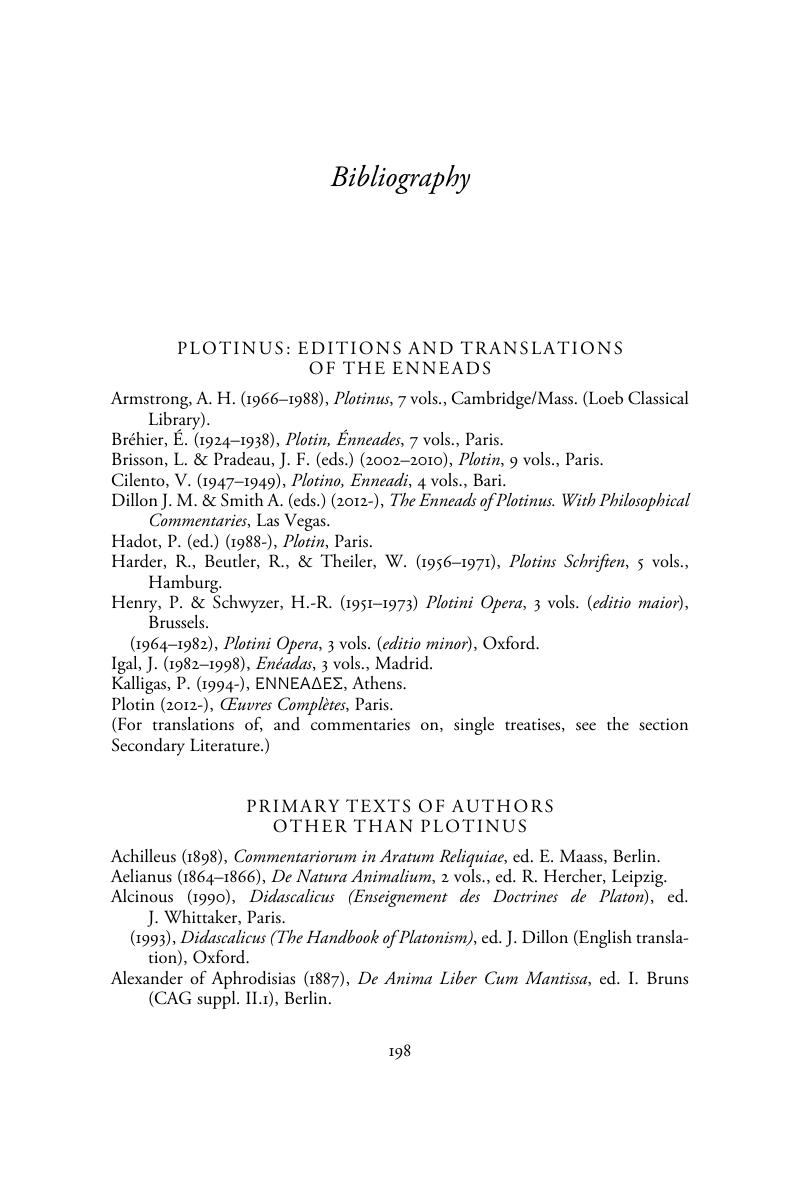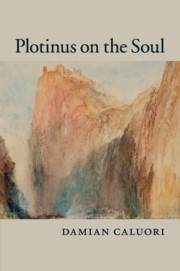Book contents
- Plotinus on the Soul
- Plotinus on the Soul
- Copyright page
- Dedication
- Contents
- Preface and acknowledgements
- Glossary
- Introduction
- Chapter 1 Unity and creation: why Plotinus introduced the hypostasis Soul
- Chapter 2 The hypostasis Soul
- Chapter 3 The hypostasis Soul and its relation to individual souls
- Chapter 4 The individual soul in the intelligible and in the sensible world
- Chapter 5 Divine individual souls
- Chapter 6 The human soul: its descent and its confusion in the sensible world
- Chapter 7 The human soul: the higher and the lower soul
- Chapter 8 The soul and the body
- Bibliography
- Indices
- Index locorum
- References
Bibliography
Published online by Cambridge University Press: 05 July 2015
- Plotinus on the Soul
- Plotinus on the Soul
- Copyright page
- Dedication
- Contents
- Preface and acknowledgements
- Glossary
- Introduction
- Chapter 1 Unity and creation: why Plotinus introduced the hypostasis Soul
- Chapter 2 The hypostasis Soul
- Chapter 3 The hypostasis Soul and its relation to individual souls
- Chapter 4 The individual soul in the intelligible and in the sensible world
- Chapter 5 Divine individual souls
- Chapter 6 The human soul: its descent and its confusion in the sensible world
- Chapter 7 The human soul: the higher and the lower soul
- Chapter 8 The soul and the body
- Bibliography
- Indices
- Index locorum
- References
Summary

- Type
- Chapter
- Information
- Plotinus on the Soul , pp. 198 - 210Publisher: Cambridge University PressPrint publication year: 2015



